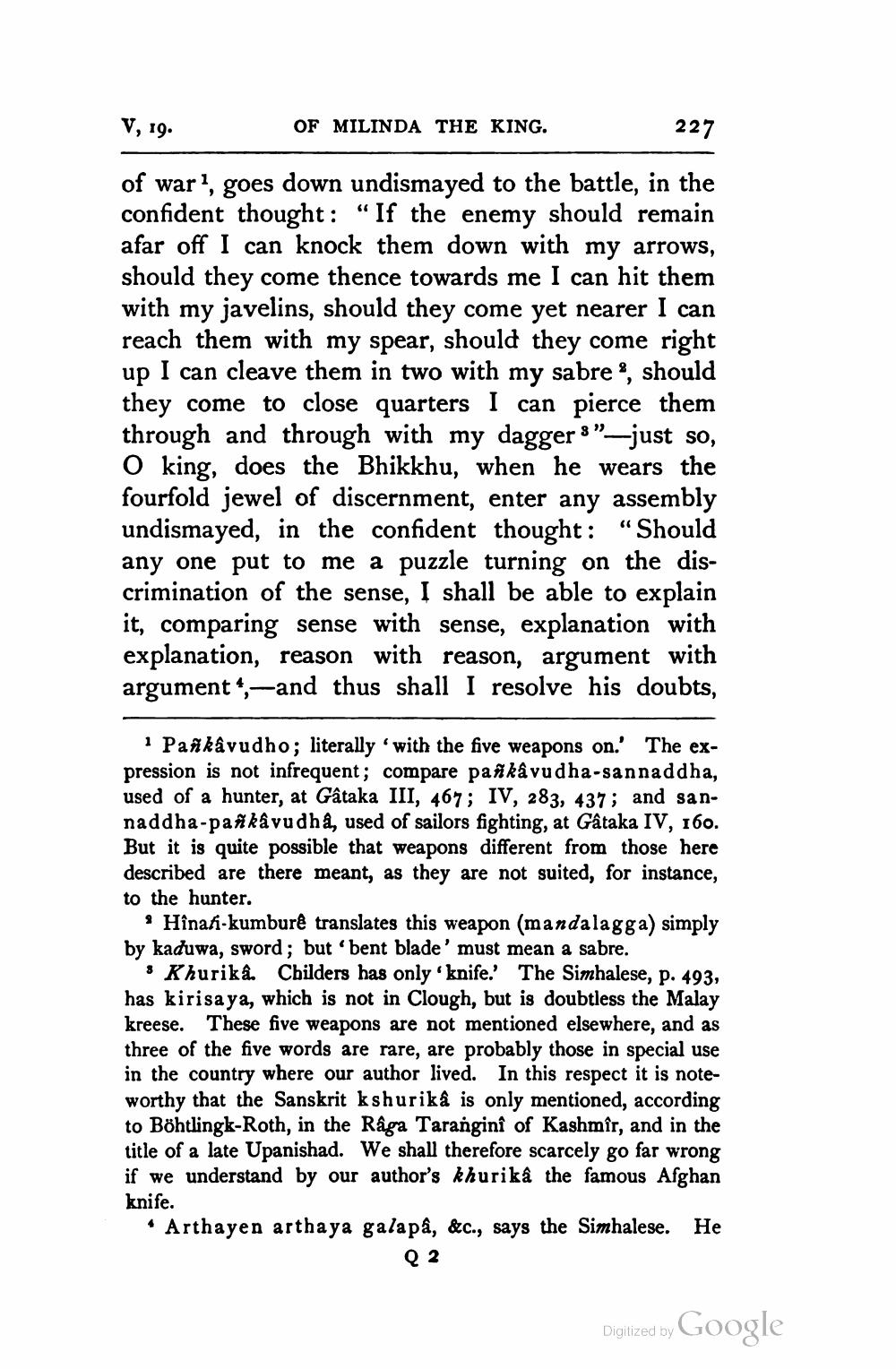________________
227
of war1, goes down undismayed to the battle, in the confident thought: "If the enemy should remain afar off I can knock them down with my arrows, should they come thence towards me I can hit them with my javelins, should they come yet nearer I can reach them with my spear, should they come right up I can cleave them in two with my sabre, should they come to close quarters I can pierce them through and through with my dagger"-just so, O king, does the Bhikkhu, when he wears the fourfold jewel of discernment, enter any assembly undismayed, in the confident thought: 'Should any one put to me a puzzle turning on the discrimination of the sense, I shall be able to explain it, comparing sense with sense, explanation with explanation, reason with reason, argument with argument, and thus shall I resolve his doubts,
V, 19.
OF MILINDA THE KING.
"6
1 Pañkâvudho; literally 'with the five weapons on.' The expression is not infrequent; compare pañkâvudha-sannaddha, used of a hunter, at Gâtaka III, 467; IV, 283, 437; and sannaddha-paйkâvudhâ, used of sailors fighting, at Gâtaka IV, 160. But it is quite possible that weapons different from those here described are there meant, as they are not suited, for instance, to the hunter.
• Hînafi-kumburê translates this weapon (mandalagga) simply by kaduwa, sword; but 'bent blade' must mean a sabre.
Khurika. Childers has only 'knife.' The Simhalese, p. 493, has kirisaya, which is not in Clough, but is doubtless the Malay kreese. These five weapons are not mentioned elsewhere, and as three of the five words are rare, are probably those in special use in the country where our author lived. In this respect it is noteworthy that the Sanskrit kshurikâ is only mentioned, according to Böhtlingk-Roth, in the Râga Taranginî of Kashmîr, and in the title of a late Upanishad. We shall therefore scarcely go far wrong if we understand by our author's khurikâ the famous Afghan knife.
Arthayen arthaya galapâ, &c., says the Simhalese. He
Q 2
Digitized by
Google




